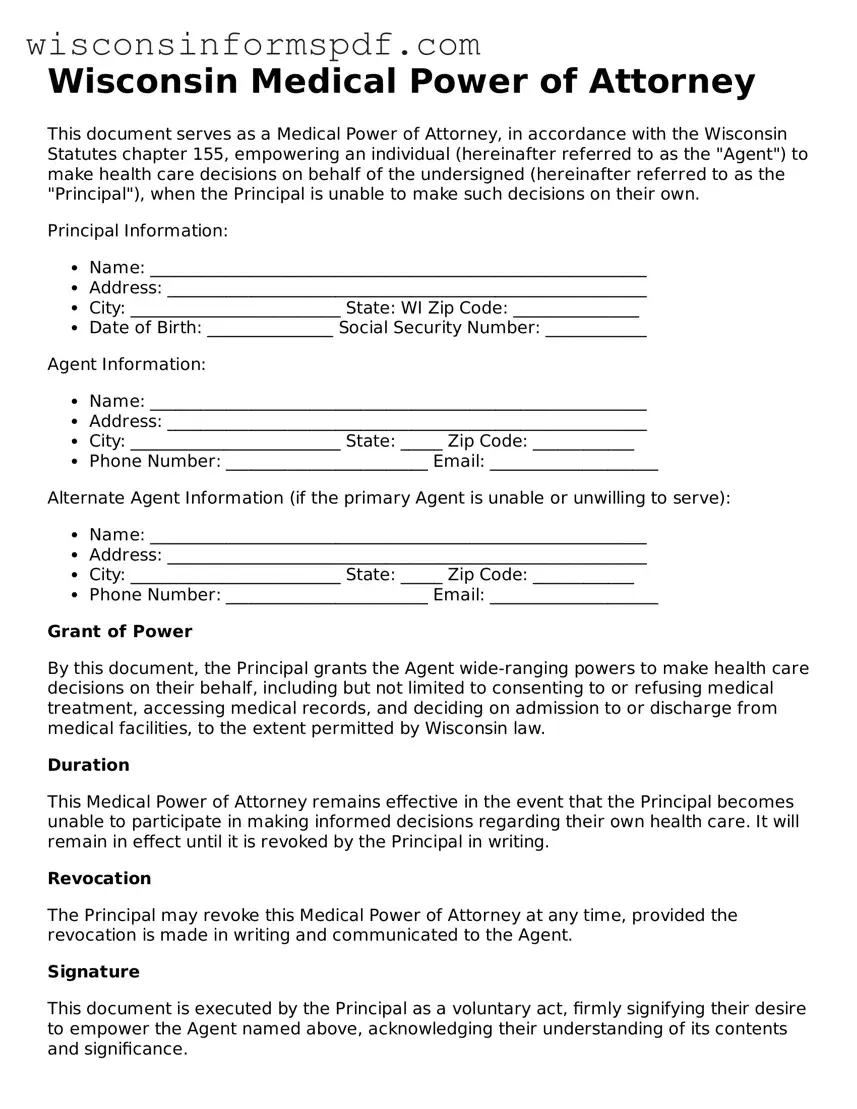Wisconsin Medical Power of Attorney
This document serves as a Medical Power of Attorney, in accordance with the Wisconsin Statutes chapter 155, empowering an individual (hereinafter referred to as the "Agent") to make health care decisions on behalf of the undersigned (hereinafter referred to as the "Principal"), when the Principal is unable to make such decisions on their own.
Principal Information:
- Name: ___________________________________________________________
- Address: _________________________________________________________
- City: _________________________ State: WI Zip Code: _______________
- Date of Birth: _______________ Social Security Number: ____________
Agent Information:
- Name: ___________________________________________________________
- Address: _________________________________________________________
- City: _________________________ State: _____ Zip Code: ____________
- Phone Number: ________________________ Email: ____________________
Alternate Agent Information (if the primary Agent is unable or unwilling to serve):
- Name: ___________________________________________________________
- Address: _________________________________________________________
- City: _________________________ State: _____ Zip Code: ____________
- Phone Number: ________________________ Email: ____________________
Grant of Power
By this document, the Principal grants the Agent wide-ranging powers to make health care decisions on their behalf, including but not limited to consenting to or refusing medical treatment, accessing medical records, and deciding on admission to or discharge from medical facilities, to the extent permitted by Wisconsin law.
Duration
This Medical Power of Attorney remains effective in the event that the Principal becomes unable to participate in making informed decisions regarding their own health care. It will remain in effect until it is revoked by the Principal in writing.
Revocation
The Principal may revoke this Medical Power of Attorney at any time, provided the revocation is made in writing and communicated to the Agent.
Signature
This document is executed by the Principal as a voluntary act, firmly signifying their desire to empower the Agent named above, acknowledging their understanding of its contents and significance.
Principal's Signature: ___________________________________ Date: _______________
Agent's Signature: ______________________________________ Date: _______________
Alternate Agent's Signature (if applicable): _________________ Date: _______________
Witness's Signature: _____________________________________ Date: _______________
Print Name: _____________________________________________
State of Wisconsin
County of ________________________
Subscribed and sworn to before me on this _____ day of ___________, 20___.
Notary Public: ___________________________________________
My Commission Expires: ___________________________________

